QuestionI have a male rabbit 10 years.I haven't sterilized him.The last 4 years he has the symptoms of pasterella multocida without vets recognize it.Unfortunately i show some pictures in Internet and i found what it has!!Here in Greece vets are not experienced in rabbits at all.Every 2 months in his right cheek under his skin it is like a small ball and i press it and i put off something white like yogurt.My vet gives me baytril in his water for 7 days and that's all.I also put him betadine in the hole.I don't know what to do.I'm desperate!I heard that this bacterial is difficult to kill.They told me to put inside the hole dalasin jel twice a day for 5 days.Is that safe?They also told me not to do surgery because is too old now.Please give me a cure and your advice!!!Thanks a lot!!
AnswerDear Nikol,
It sounds as if your bunny has a tooth root abscess. This may or may not be caused by Pasteurella, and it would be wise to have a culture and sensitivity test done, as described here:
www.bio.miami.edu/hare/culture.html
It doesn't take a rabbit expert to do this; any vet should be able to take a clean sample and send it to a lab for identification. This will tell which antibiotic will be most effective.
Baytril in the water is a terrible idea, however. It makes the water bitter, so the bunny won't drink it, and you cannot get an accurate dose. The antibiotic should be given orally in a precise dose, twice a day. Our vets usually prescribe 20mg/kg of ciprofloxacin or Baytril when this is the most appropriate antibiotic choice. However, many jaw abscesses contain bacteria that are more sensitive to other antibiotics, such as Penicillin-G Procaine. Note that *oral penicillins are deadly to rabbits, and must never be given by mouth!* Penicillin-G Procaine (with or without Benzathine) is the only type of penicillin-family drug considered safe for rabbits, and it must be injected, not given any other way.
For more information, please read:
www.bio.miami.edu/hare/jawabscess.html
and
www.bio.miami.edu/hare/dental.html
and
www.bio.miami.edu/hare/sneezing.html
Please feel free to share any of that information with your veterinarians. I hope it will help.
Dana

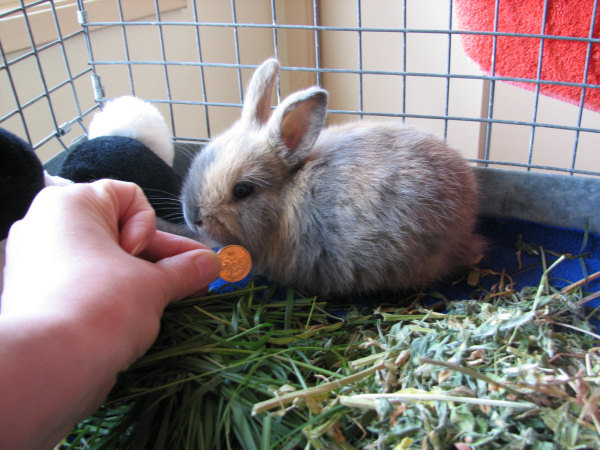 Orphaned domestic bunny
Question
4-5 weeks???
Just wondering if Critical Care f
Orphaned domestic bunny
Question
4-5 weeks???
Just wondering if Critical Care f
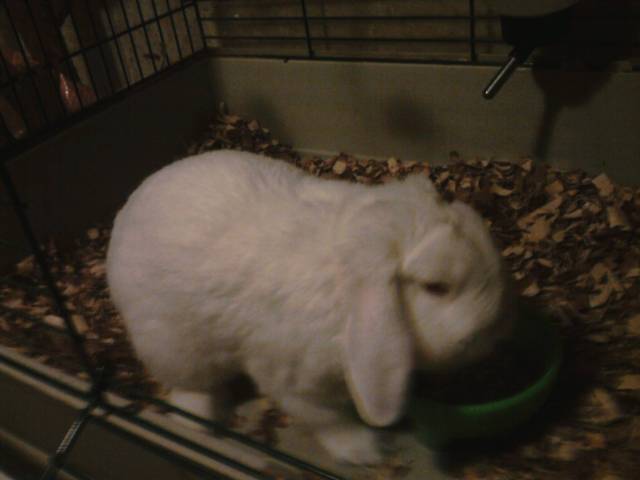 What kind of rabbit do I have?
QuestionQUESTION: I was given a rabbit for a classroom
What kind of rabbit do I have?
QuestionQUESTION: I was given a rabbit for a classroom
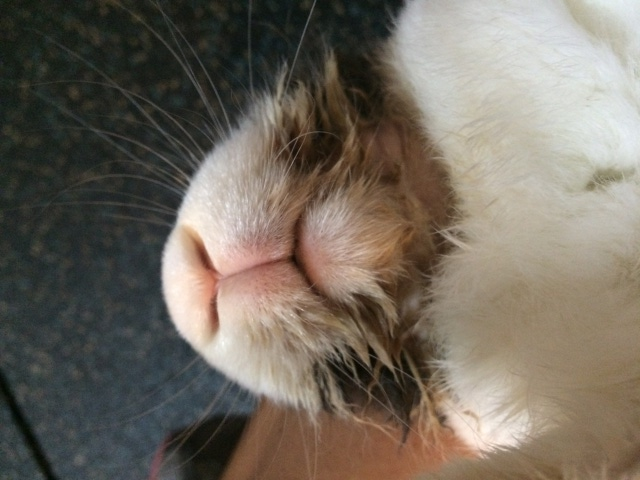 elderly rabbit and chin hair loss/goopy mess
QuestionBunnys chin
QUESTION: My bunny is 9 year
elderly rabbit and chin hair loss/goopy mess
QuestionBunnys chin
QUESTION: My bunny is 9 year
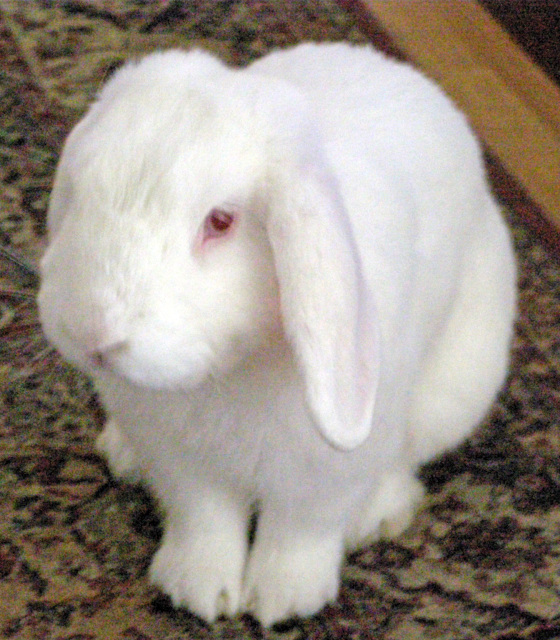 Male rabbit is spraying and pooping everyware
Question
Marshmellow
I have a male rabbit about 2 yrs o
Male rabbit is spraying and pooping everyware
Question
Marshmellow
I have a male rabbit about 2 yrs o
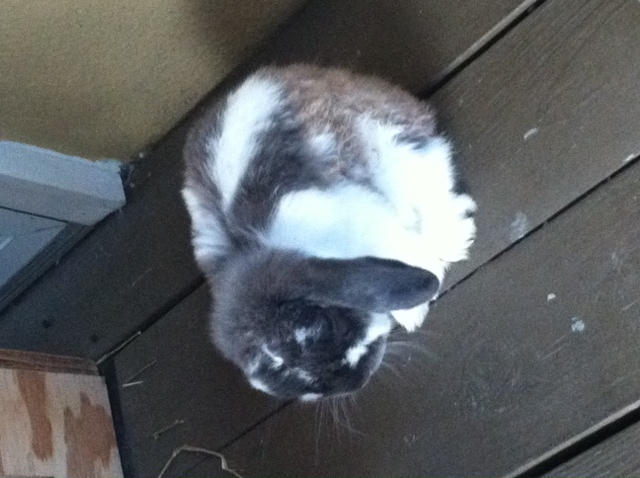 Scab-ish growth on my rabbits ear?
Question
Rhino Right outer ear
Hello!
Ill
Scab-ish growth on my rabbits ear?
Question
Rhino Right outer ear
Hello!
Ill